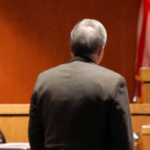Federal Offenses are Prosecuted in United States District Courts
Assistant United States Attorneys, or AUSAs, are highly trained and skilled. Few defense lawyers are capable of effectively defending federal charges.

Felony and Misdemeanor Charges in Federal Court are Divided into Classifications
Federal charges in Michigan are grouped into four classifications depending on their possible maximum penalties: felonies (1 year or more), misdemeanors (1 year or less), infractions (5 days or less), and petty offenses (maximum fines of $5,000 for individuals and $10,000 for organizations). Here is what you need to know if you face criminal allegations or federal charges in the United States District Court for the Eastern District of Michigan.
Felonies and misdemeanors are further classified into “classes.” The federal criminal classes are as follows:
Felonies:
- Class A — Life imprisonment or death
- Class B — 25 years or more
- Class C — 10–25 years
- Class D — 5–10 years
- Class E — 1–5 years
Misdemeanors:
- Class A — 6 months – 1 year
- Class B — 30 days – 6 months
- Class C — 5 days – 30 days
The classifications of federal charges in Michigan determine additional sentencing consequences, such as the allowable term of supervised release and whether the government charges by indictment, complaint, or information.
Felonies must be charged by indictment or complaint unless the defendant waives indictment. If the defendant waives their right to be indicted, the government can proceed with charges through a felony “information.” Federal misdemeanors may be charged by indictment, information, ticket, or complaint. All felony offenses are tried before a district court judge. Misdemeanors may be tried before a magistrate judge when the defendant consents in writing.
Federal Prosecutors – The United States Attorney’s Office
Increasingly, federal prosecutors work with local law enforcement officials, either directly or through joint federal and state task forces; however, the primary federal investigative agencies for the United States Attorney’s Office are the Federal Bureau of Investigation (“FBI”), Secret Service, Customs & Border Protection Service, Bureau of Alcohol, Tobacco, Firearms & Explosives (“ATF”), Internal Revenue Service (“IRS”), and U.S. Postal Inspectors. Although local police departments are not authorized to conduct federal investigations, information obtained through police investigations is frequently used by federal prosecutors in the United States District Court.
Federal Criminal Investigations
Criminal investigations are initiated in one of three ways: (1) law enforcement officials may suspect a crime is being committed and begin an investigation that may lead to felony or misdemeanor charges, (2) law enforcement officials may respond to the commission of a crime, arrest their suspects, and then conduct a full investigation of the case, or (3) based on information or testimony provided by a cooperating witness or person under federal charges. Federal charges in Michigan generally arise from investigations and rarely result spontaneously from a crime in progress.

Federal Felony and Misdemeanor Charges in Michigan
The types of offenses that the attorneys with LEWIS & DICKSTEIN, P.L.L.C. most frequently defend vary over time, depending on factors such as changes in the law, law enforcement priorities, and social or political contexts. However, the following are some of the federal felonies and misdemeanors most frequently handled by our federal defense team:
Felonies
Federal felony charges in Michigan include offenses carrying a maximum possible sentence exceeding one year in the Bureau of Prisons.
- Drug offenses: These can range from possession with intent to distribute to trafficking large quantities of controlled substances, including marijuana, cocaine, methamphetamines, opioids, and other drugs.
- Firearms offenses: These include unlawful possession of firearms (especially by convicted felons or individuals subject to restraining orders), possession of firearms in furtherance of drug trafficking or violent crimes, and illegal sale or distribution of firearms.
- Fraud offenses: These include mail fraud, wire fraud, bank fraud, health care fraud, unemployment fraud, healthcare fraud, and securities fraud.
- Immigration offenses: Illegal re-entry after deportation is one of the most commonly prosecuted federal offenses. There are also prosecutions related to smuggling or harboring undocumented immigrants and human trafficking offenses.
- White-collar crimes: These can include money laundering, bribery, embezzlement, insider trading, securities fraud, and more.
- Public corruption: Crimes committed by public officials, such as accepting bribes or kickbacks.
- Tax offenses: Including tax evasion or fraudulent tax filings.
- Sex offenses: Such as production, distribution, or possession of child pornography; and sex and human trafficking.
- Violent crimes: These can include certain robberies, kidnappings, and assaults that fall under federal jurisdiction, as well as offenses related to racketeering (RICO) or organized crime.
- Terrorism-related offenses: Though these are less frequent, they are heavily prioritized for prosecution when they occur.
Misdemeanors
Federal misdemeanors are less common than felonies in U.S. District Courts, as many misdemeanors are prosecuted at the state or local level. However, some federal misdemeanors include:
- Minor drug possession: For controlled substances that don’t involve an intent to distribute.
- Petty offenses on federal property: These can include minor thefts, assaults, or public disorder offenses on federal land or buildings, including national parks, airports, or airplanes.
- Certain regulatory offenses: For example, violations of federal wildlife regulations or other administrative rules.
- Traffic offenses on federal property: For example, speeding or DUI on federal lands, including military bases.
Remember that federal courts deal with crimes that violate federal laws, whereas state courts(which make up the majority of crimes in the U.S.) deal with crimes that violate state laws.
U.S. District Court Locations in Michigan for Federal Charges
Eastern District of Michigan:
- Detroit – Theodore Levin U.S. Courthouse, 231 W. Lafayette Blvd., Detroit, MI 48226 – (313) 234-5000
- Flint – 600 Church Street, Flint, MI 48502 – (810) 341-7858
- Ann Arbor – 200 E. Liberty Street, Ann Arbor, MI 48104 – (734) 741-2380
- Bay City – 1000 Washington Avenue, Bay City, MI 48708 – (989) 894-8840
- Port Huron – 526 Water Street, Port Huron, MI 48060 – (810) 985-2200
Western District of Michigan:
- Grand Rapids – Gerald R. Ford Federal Building, 110 Michigan NW, Grand Rapids, MI 49503 – Phone: (616) 456-2381
- Kalamazoo – 410 W. Michigan Avenue, Kalamazoo, MI 49007 – (269) 337-5706
- Lansing – 315 W. Allegan Street, Room 201, Lansing, MI 48933 – (517) 377-1555
- Marquette – 202 W. Washington Street, Marquette, MI 49855 – (906) 226-3850
Federal Law Enforcement’s Power is Not Unlimited
Law enforcement officials must comply with constitutional limitations on their powers, like the Fourth Amendment, which protects against unreasonable searches and seizures, and proper procedures under the Federal Rules of Criminal Procedure. The Fifth and Sixth Amendments to the Constitution govern when and how officers can interrogate potential suspects in custody. Any evidence seized by the government in violation of the law may be subject to suppression. If a judge suppresses evidence in a case, the evidence’s exclusion could lead to a dismissal of all federal charges in Michigan. Federal judges tend to bend over backward to help the U.S. attorney’s office. It takes a highly respected, influential, and experienced defense attorney to give their client a fighting chance!
Arrest and the Start of Prosecution
In those cases where a suspect is arrested on federal charges in Michigan without a warrant, the officers must file a complaint in the United States District Court. A magistrate judge decides whether sufficient probable cause exists to hold the suspect until formal charges can be filed. If the defendant remains in custody, prosecutors have 14 days to conduct a preliminary examination. At a preliminary examination, the Assistant United States Attorney must introduce sufficient evidence to hold the defendant for trial. In practice, preliminary examinations are rarely held in federal court. Prosecutors will usually opt to obtain an indictment from a grand jury before the 14-day period expires. Every defendant charged with a felony in federal court is entitled to an indictment or a preliminary examination. If a defendant is accused of a misdemeanor, the prosecutors may file an Information with the court, and an indictment is unnecessary.
If a defendant makes bail and is out of custody following his arrest, prosecutors have 21 days to conduct a preliminary hearing or obtain a grand jury indictment. In some cases, especially those involving lengthy investigations or multiple defendants, prosecutors will obtain an indictment before a defendant is arrested or file a complaint requesting an arrest warrant. The indictment or complaint will often remain sealed or secret until the defendant is arrested. It is vital that someone facing federal charges appear only with a qualified defense attorney so they are assured of getting a low or unsecured bond (one requiring no money deposit, AKA personal bond).

What do I do if I am charged in federal court?
In the unfortunate event that you or a loved one becomes the target of a federal investigation, a complaint, or an indictment, it is critical that you obtain experienced legal counsel as soon as possible. Things happen quickly during investigations and in court. Any delay can cause missed opportunities to gain an advantage for the defendant when facing federal charges in Michigan. If you or a loved one is under federal investigation or facing prosecution for felony or misdemeanor charges in the United States District Court in Detroit or elsewhere in Michigan, call the highly experienced and successful federal defense attorneys LEWIS & DICKSTEIN, P.L.L.C. right away. We will take the time to talk with you, answer your questions, and address your concerns.
Call us today at (248) 263-6800 for a free consultation or complete an online Request for Assistance Form. We will contact you promptly and find a way to help you.
















